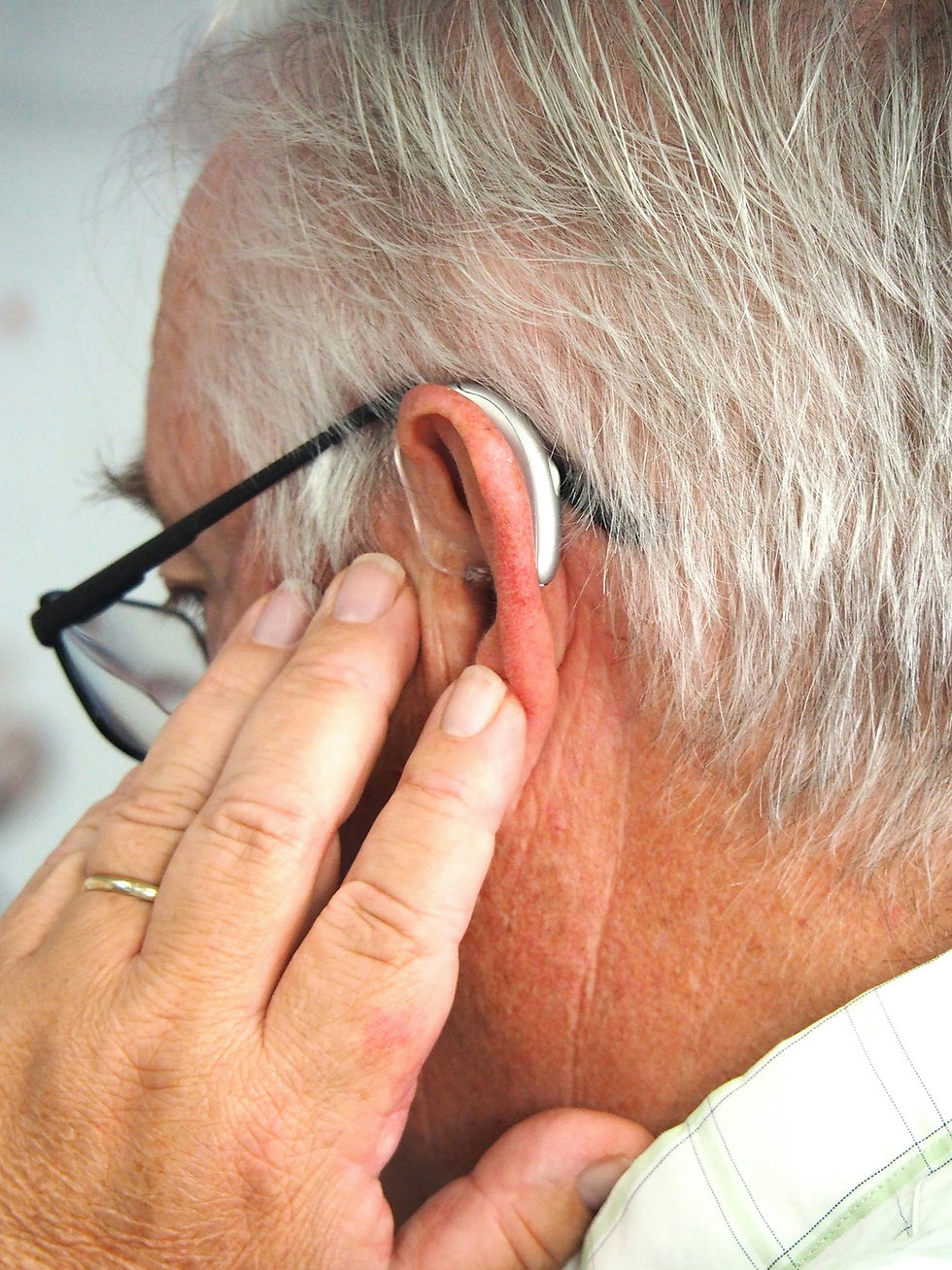Top Strategies for Better ENT Health
- Dr. Pratibha Pandit Mane

- Oct 1, 2025
- 3 min read
Maintaining good ear, nose, and throat (ENT) health is essential for overall well-being. These

interconnected systems play a vital role in breathing, hearing, speaking, and protecting the body from infections. Unfortunately, many people overlook simple habits that can significantly improve their ENT health. This article explores practical strategies to help you achieve better ear nose throat health and avoid common problems.
Understanding the Importance of Better Ear Nose Throat Health
The ear, nose, and throat are closely linked anatomically and functionally. Problems in one area can affect the others. For example, sinus infections can lead to ear pain, and allergies can cause throat irritation. Prioritizing ENT health helps prevent infections, improves breathing, and enhances quality of life.
Some common ENT issues include:

Sinusitis
Ear infections
Allergies
Tonsillitis
Hearing loss
By adopting healthy habits and being proactive, you can reduce the risk of these conditions and maintain optimal function.
Effective Practices for Better Ear Nose Throat Health
Improving your ENT health involves a combination of lifestyle changes, hygiene practices, and awareness of environmental factors. Here are some effective strategies:
1. Maintain Proper Hygiene
Nasal care: Use saline sprays or rinses to keep nasal passages moist and clear of irritants.
Ear care: Avoid inserting objects like cotton swabs into the ear canal. Clean the outer ear gently with a washcloth.
Throat care: Gargle with warm salt water to soothe irritation and reduce bacteria.
2. Manage Allergies and Avoid Irritants
Allergies can cause inflammation in the nose and throat, leading to discomfort and infections. Identify and avoid allergens such as pollen, dust, and pet dander. Use air purifiers and keep your living space clean.
3. Stay Hydrated and Maintain a Healthy Diet
Drinking plenty of water keeps mucous membranes moist, which helps trap and expel pathogens. A diet rich in fruits, vegetables, and antioxidants supports immune function and tissue repair.
4. Avoid Smoking and Limit Exposure to Pollutants
Smoking damages the lining of the respiratory tract and increases the risk of infections and chronic conditions. Avoid secondhand smoke and reduce exposure to air pollution whenever possible.
5. Practice Safe Ear Protection
Use earplugs or noise-canceling headphones in loud environments to prevent hearing damage. Avoid prolonged exposure to loud music or machinery.
How to Take Care of ENT?
Taking care of your ear, nose, and throat requires consistent attention and simple daily habits. Here are some actionable recommendations:
Regular Checkups
Schedule routine visits with an ENT specialist, especially if you experience recurring symptoms like ear pain, nasal congestion, or throat discomfort. Early diagnosis can prevent complications.
Proper Ear Cleaning
Never insert sharp or pointed objects into your ears. If you suspect earwax buildup, consult a healthcare professional for safe removal.
Nasal Irrigation
Use a neti pot or saline spray to flush out mucus and allergens from your nasal passages. This practice can relieve congestion and reduce sinus infections.
Voice Care
Avoid straining your voice by speaking softly and staying hydrated. Rest your voice if you experience hoarseness or soreness.
Sleep and Rest
Adequate sleep supports immune function and tissue healing. Elevate your head slightly during sleep to reduce nasal congestion.
Lifestyle Adjustments to Support ENT Health
In addition to direct care, certain lifestyle changes can enhance your ear, nose, and throat health:
Exercise regularly: Physical activity improves circulation and immune response.
Manage stress: Chronic stress weakens immunity and can exacerbate ENT symptoms.
Humidify your environment: Use a humidifier in dry climates or during winter to prevent dryness in nasal and throat tissues.
Avoid excessive use of decongestants: Overuse can cause rebound congestion and damage mucous membranes.
When to Seek Medical Attention
While many ENT issues can be managed at home, some symptoms require professional evaluation:
Persistent ear pain or discharge
Severe or prolonged nasal bleeding
Difficulty swallowing or breathing
Sudden hearing loss or ringing in the ears
Chronic hoarseness or throat pain
If you experience any of these, consult an ENT specialist promptly.
For more detailed ent health tips, visit trusted medical resources or speak with your healthcare provider.
Embracing a Holistic Approach to ENT Wellness
Better ear nose throat health is achievable through a combination of good hygiene, healthy habits, and timely medical care. By understanding the interconnectedness of these systems and taking proactive steps, you can enjoy improved breathing, hearing, and overall comfort.
Remember, small changes in your daily routine can make a significant difference. Prioritize your ENT health today for a healthier tomorrow.




Comments